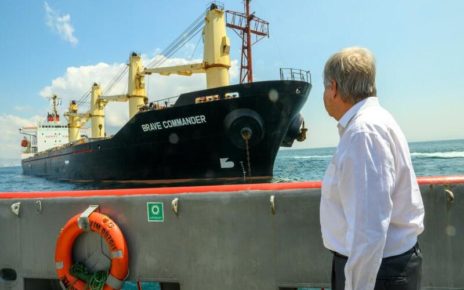It is rumored that in recent years the US has lost its national ethos as well as supremacy over the international system. Two wars, numerous costly operations in other countries, and a difficult economic crisis have made the US dependent on foreign capital inflows. This weakens American global leadership, which started around WW2. The country’s $16.7 trillion debt has more than doubled since 2008 without signs of reduction in the near future. About $5.6 trillion, approximately a third, is held by foreign governments. China and Japan hold the largest amount of US external debt, with China holding $1.3 trillion and Japan holding $1.1 trillion.
The failure of Congress to raise the debt ceiling, a deadline approaching in a few weeks, will lead to a US government default, triggering a catastrophic ripple throughout the international financial system. As a result, similar to the 2011 debt-ceiling scare, US Treasury bill prices might drop as demand simultaneously drops from China, Japan, and other foreign investors. Even if Treasury prices are unaffected, the damage could carry over to other markets, creating even greater volatility in stock prices. All of this would further undermine the role and position of the US in the world economy.
Despite these gloomy outlooks, US influence on popular culture, cuisine, technology, or business practices in other countries is unlikely to decline in the near future. This is particularly true due to the vast number of information that flows out of, is created in, or represented by the US. Information has the power to shape views and opinions, and influence individuals and governments beyond national borders. It is an essential building block for all.
A team of researchers that are part of the Information Geographies at the Oxford Internet Institute are mapping the flow, creation, and representation of information. A map of the Location of Academic Knowledge visualizes the location and impact of academic knowledge by counting the amount of scientific journals and citations produced by each country. It can be seen that the US publishes more index journals than any other country. Another noteworthy map is User Generated Content in Google. It visualizes the amount of user-generated content in Google around the world, in addition to highlighting information produced and disseminated by the US. The US represents 90 percent of the world’s content, followed by Europe and Japan. This information does not equally reach all parts of the world because only 40 percent of the world has online access, according to a United Nations report. These numbers will drastically change in the next five years as more people will become connected (through Internet access or mobile phones) in developing countries.
By producing large amounts of information through scientific journals and online content, the US is able to influence and impact the opinions, views and culture of other countries. In 2008, The Guardian published an article hailing that “the era of American dominance is over.” This is unlikely to happen as long as the US continues to produce information. Information stimulates innovation, educates citizens, improves daily lives, and creates a ripple of influence that is felt throughout the entire global system. Access to Information is the driving force of innovation and growth; it is what drives the economy through its booms and busts. As long as the US continues to be the dominant force in producing information, it will continue to reap the benefits which such a position yields.




